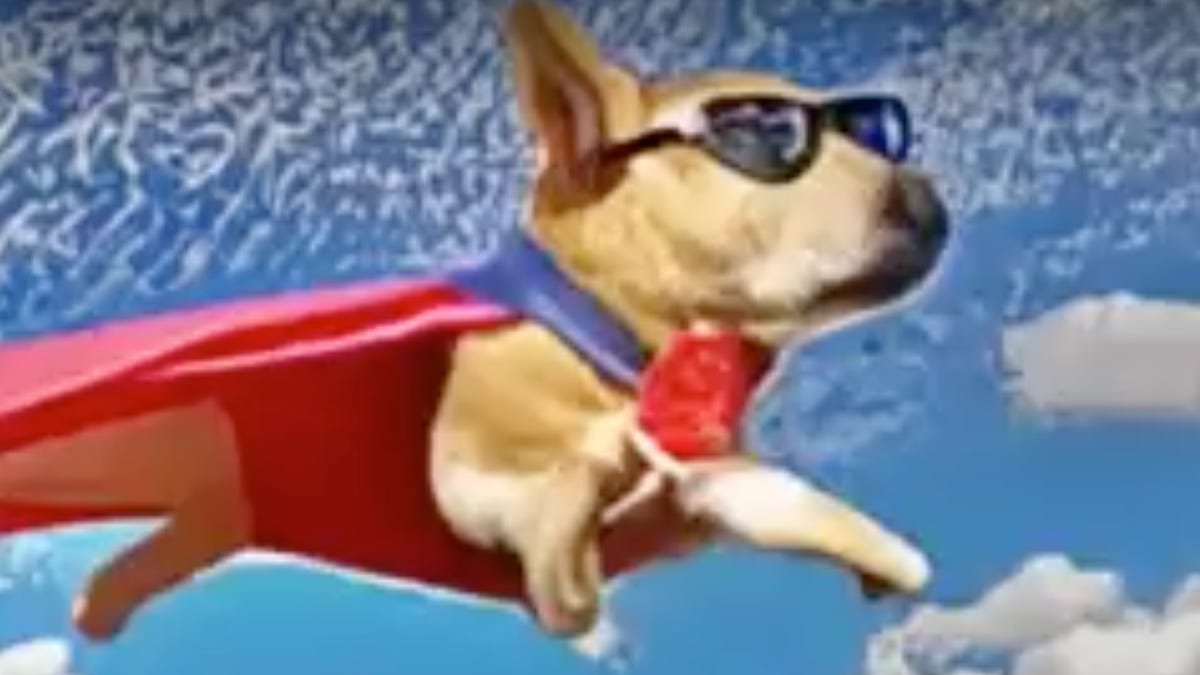Facebook Parent Meta's AI Tool Can Create Artsy Videos From Text

Screenshot of a video of a superhero dog created by Meta's AI system.
What's happening
Meta created a new AI system that can create videos from text prompts.
Why it matters
Meta's research into AI technology that can create new content could make it easier for creators and artists to make videos. Still, there are also concerns that these tools could be abused.
In one video, a dog wearing a red cape and sunglasses flies through the sky. In another video, unicorns gallop along a beach.
Facebook parent company Meta created these quirky videos with a new artificial intelligence system called Make-A-Video. It's part of Meta's research into technology that can create new content from text prompts. Meta said that Make-A-Video can also generate videos from images or similar videos.
Meta says its research into what's known as "generative AI" has the "potential to open new opportunities for creators and artists." Other companies are also studying this technology, making it easy for people to create art that would typically take a lot of time for humans to make. OpenAI, the company behind a service called Dall-E that uses AI to turn text prompts into visual art, said this week it opened the tool to everyone and roughly 1.5 million people make more than 2 million images a day. In May, Google unveiled an AI program that can turn text prompts into images.
Meta said that it plans to release a demo of Make-A-Video, but the tool isn't currently available to everyone. Meta's AI research team will be taking image requests through its Twitter account.
"Generative AI research is pushing creative expression forward by giving people tools to quickly and easily create new content," Meta said in a blog post on Thursday. "With just a few words or lines of text, Make-A-Video can bring imagination to life and create one-of-a-kind videos full of vivid colors and landscapes."
Meta also built an AI model called Make-A-Scene that generates "photorealistic illustrations and storybook-quality art" from words and sketches.
As tech companies make it easier for users to create images and videos, there have also been concerns about whether these AI tools could be abused. US Rep. Anna Eshoo, a California Democrat, expressed some of those concerns, noting in a September letter that Stable Diffusion was used "to create photos of violently beaten Asian women and pornography depicting real people."
Meta said in its blog post it wants to be "thoughtful" when building generative AI systems and is open to getting feedback as the company shares their research publicly.

